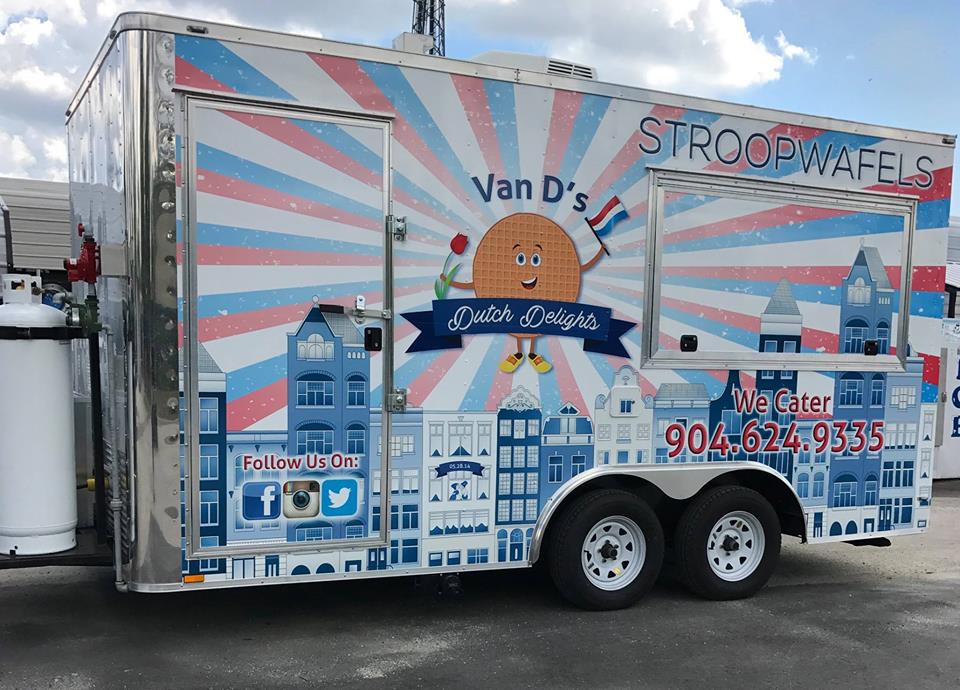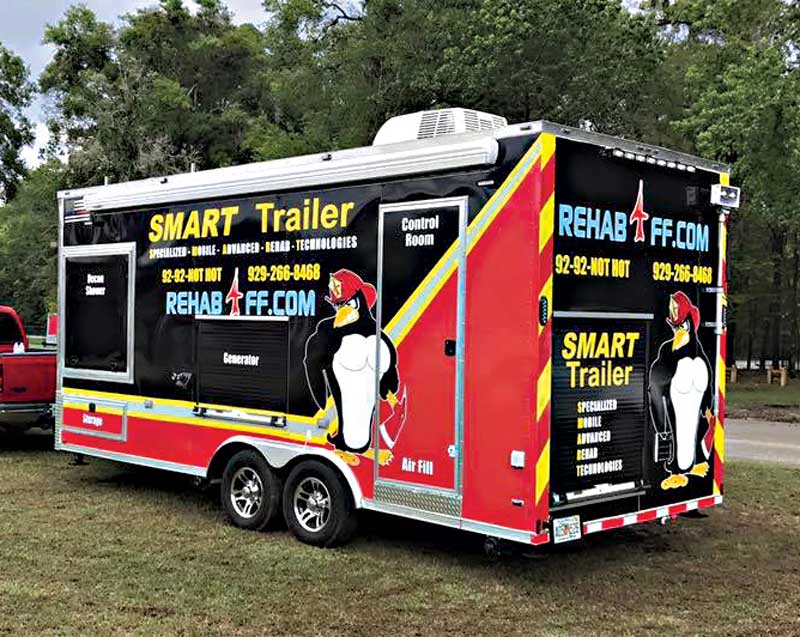When emergencies happen, you need teams of highly-skilled people that can mobilize quickly and travel to a distressed area to help. In critical situations like this people like first responders, fire fighters, nurses, and law enforcement usually come to mind. These people are the first at the scene of a catastrophic event.
But in recent months, seemingly unlikely food trucks have also been called upon to serve their communities after natural disasters. Food trucks answered this call by moving to support emergency workers and victims of storms like Hurricane Irma. When the power goes out and fresh water becomes non-existent these mobile food units are able to travel to the hardest hit areas to offer hot food, water, and in some cases shelter for individuals that have lost everything.

Van D’s Dutch Delights Desert Trailer.
Disaster Relief Vehicle Requirements
Although food trucks and concession trailers were not built with the intent to rush into disaster areas, they are well-equipped and prepared to handle many of these emergency situations. Below are four key reasons mobile food units are often called into action:
Speed: When disaster strikes, you need help that can be mobilized quickly today… Not sometime next week. Food trucks have the ability to spring into action with little notice. Often the only preparation needed is getting the right supplies (water, coffee, food) loaded up onto the truck and taking off.
Mobility: After a natural disaster, a cities electrical grid can be decimated and offline for days or in some instances weeks. This means not only homeowners are without power, but local services like restaurants and gas stations are offline too. Food truck have the ability to drive directly into the most distressed areas and offer services like cold water and a warm meal.
Equipment: Food trailers are already equipped with the right tools to serve emergency victims. There are ovens to heat meals. There are tables to prepare warm meals and refrigeration to keep perishable food cool. There’s also generators already installed so that these units can operate off-the-grid and without any electrical source.
Skilled: Finally, food truck owners have a unique skill set that often goes unnoticed. Food truck owners are accustomed traveling and setting up at events with few amenities. They are also comfortable preparing and distributing food quickly to large groups of people. These are critical skills to have in these scenarios.

Ideally local organizations like fire departments and hospitals will also have mobile medical vehicles on hand with additional specialized equipment for health care purposes. Many hospitals now have mobile clinics to help provide first aid and other emergency services in these events.
Recent Ways Food Trucks Have Served as Disaster Relief Units
According to reports, an average of 844,239 people are impacted by a natural disaster each year in the United States. A disaster could take the form of a flood, wildfire, drought, or hurricane depending on where you live. Here are a few specific ways food trucks have been called into action in recent months:
Napa and Sonoma Counties: Hat tip to Off The Grid that has helped mobilize Bay Area food trucks to serve areas impacted by wild fires within these counties. Food trucks are helping to ensure food donated is distributed to the right areas where people need help the most in these areas.
Las Vegas, Nevada: After the tragic shooting in Las Vegas, restaurants and food trucks banded together to help serve hot meals to first responders and victims of the this event.
South Florida – Pembroke Park and Monroe County have been aided by over 100 total food trucks to distribute free meals to residents. This is an incredible effort by the food truck community and other companies like JetBlue that helped sponsor these important events.
Although disaster relief was never the original intent for these food truck owners, they have gone above and beyond the call of duty to serve their communities when they needed help most. This is just another example of why we love this industry so much.
